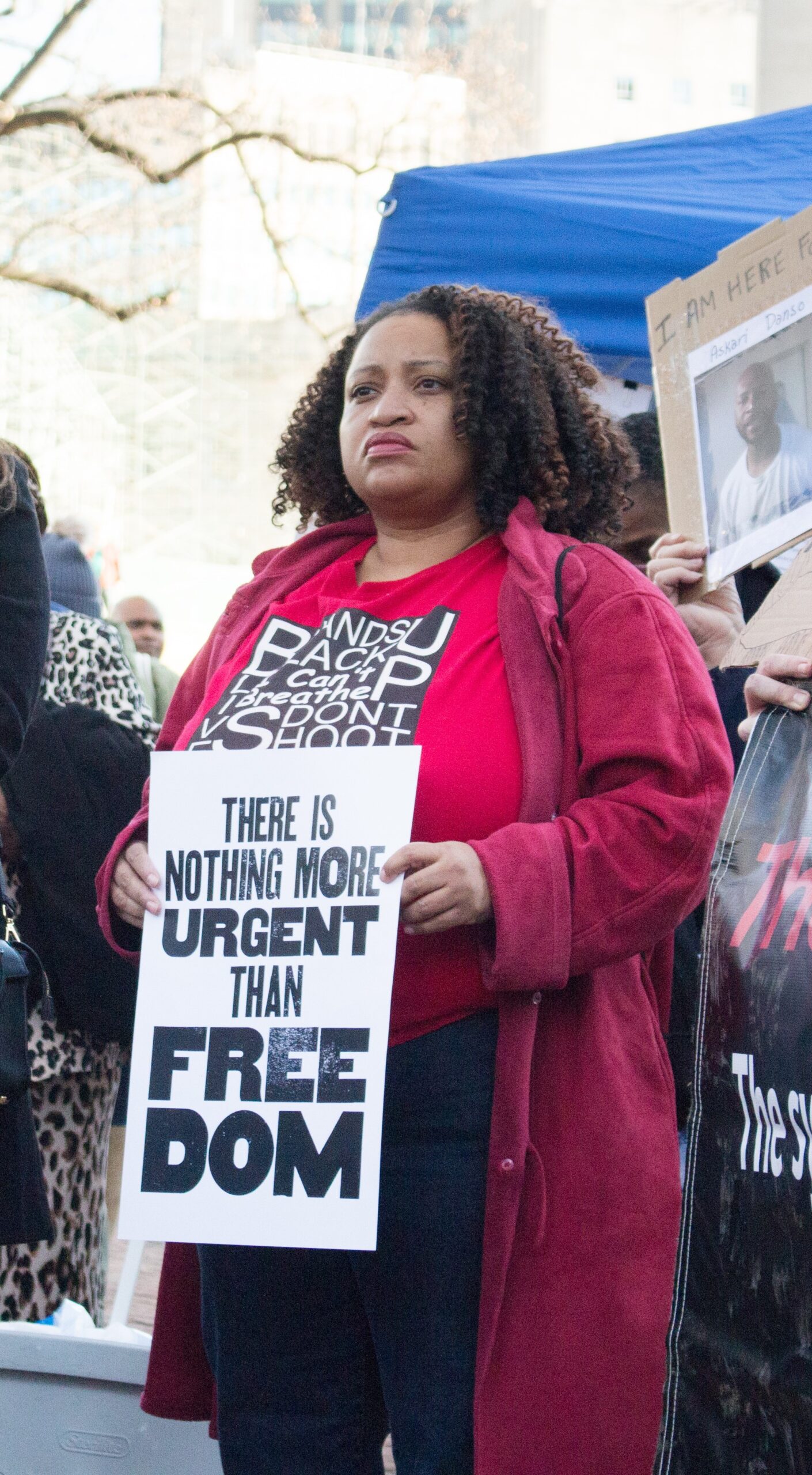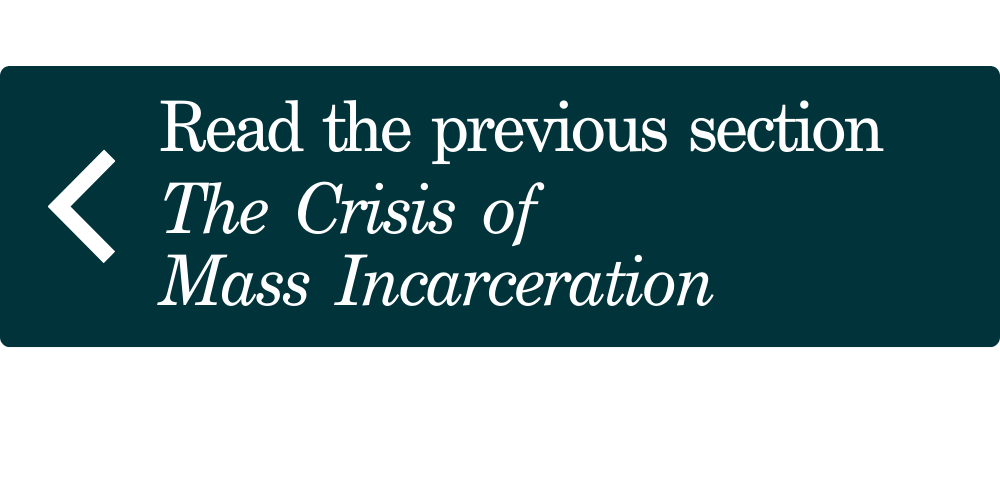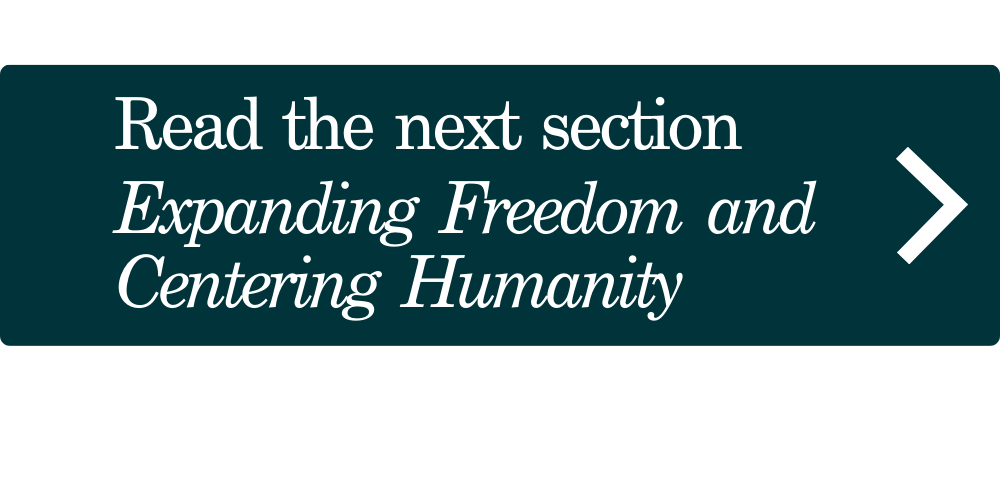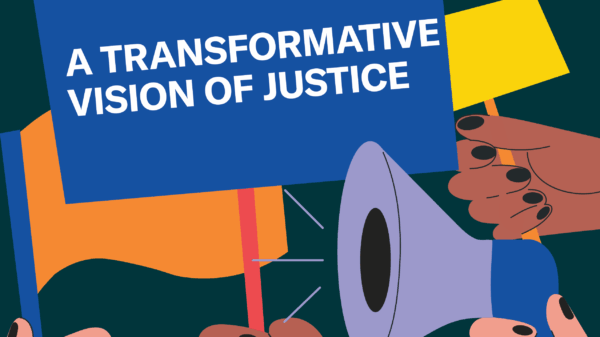A Proven Foundation
In recent years, New Jersey has been a national leader in decarceration. Policy changes we've achieved with our partners have proven that releasing incarcerated people at the largest scale is possible – and fundamental for racial justice here, and beyond.
Cash Bail Reform
Across the country, the cash bail system drives incarceration and criminalizes poverty. People who cannot afford to pay bail – but have not been found guilty – are forced to stay in jail until trial, putting their safety, housing, jobs, and families at risk.
For years, New Jersey followed traditional cash bail models. But in 2014, that began to change. Following years of advocacy from the ACLU-NJ and partners from across the ideological spectrum, lawmakers passed a bipartisan piece of legislation mandating a presumption of release for almost all defendants and equipping judges with more data to inform their pretrial release decision-making. Additionally, nearly two-thirds of voters approved a constitutional amendment that was required to reform the cash bail system. This victory was a product of overwhelming support from the public and the collaboration of a wide array of stakeholders.
Soon after, opponents in the bail bond industry tried to halt the law in court. The ACLU-NJ partnered with impacted community members, educated the public, and appeared in federal court to ensure that bail reform could continue as a necessary change in fairness – all as a part of a longer decarceration movement that we’re still fighting for today.
The 2014 legislation officially went into effect in 2017. Now, with five full years of data, it is clear that bail reform has been a resounding success. The pretrial jail population plummeted from around 9,000 people before the reforms to just over 5,000 people in 2018 and 2019. The number of incarcerated people stayed low in the beginning of 2020 and dropped to just over 4,000 at the first months of the pandemic. But COVID-19 caused New Jersey to suspend criminal trials for long periods and when trials resumed, they did so at far slower rates than before. This led to a significant uptick in the number of people held pretrial and that increase has persisted until today. Still, even with people incarcerated at the highest rate since the reforms, there have been significant gains. By 2020, just 0.2 percent of people detained pending trial were held on bail of $2,500 or less, according to a judiciary criminal justice report. In a 2012 report, that share was an alarming 12 percent.
The analysis also showed that reforming the bail system resulted in an insignificant increase in serious crimes. Indictable criminal activity by defendants released pretrial remained below 14 percent for three years. The recidivism rate for serious, violent crime is at only one percent, and people are also showing up in court at higher rates.
There are now thousands of people who kept jobs, stayed connected with family, and maintained their housing because they were not incarcerated waiting for their case to be heard.
Public Health Emergency Credits
The COVID-19 pandemic had a monumental impact on our nation’s incarcerated population. Prisons and jails have cramped living quarters, poor health care, and unsanitary conditions, making adherence to COVID-19 public health guidelines nearly impossible.
Consequently, throughout the pandemic, incarcerated people faced dire threats to their health. New Jersey quickly earned the shameful distinction of having the highest COVID-19 prison death rate in the nation.
We knew the best relief from oppressive conditions was to release people. In an urgent effort to save lives, the ACLU-NJ and partners shared our vision with legislators for a first-of-its-kind law – the Public Health Emergency Credit (PHEC) – that reduced sentences by four months for each month of the declared state of emergency.

We partnered with impacted families, advocacy organizations, and activists across the state to push for the bill. After rapid, relentless advocacy, legislators passed PHEC and enabled people nearing their release dates to leave prison up to eight months early.
Under PHEC and related litigation, nearly 9,000 people were released from prison. That amounted to more than 5,000 years – or more than two million days – of returned freedom and opportunity. After PHEC, recidivism rates for released individuals were not significantly higher than the state average.
PHEC was passed for a specific reason – to address the public health crisis of a highly contagious pandemic. But the law has helped confront a much longer crisis: over-incarceration and the criminalization of people of color. It’s clear that PHEC can serve as a model for further decarceration, and at the largest scale.
At its heart, PHEC was not a policy about the pandemic. It was a policy about humanity. It recognized that no one, including incarcerated people and their families, deserves gratuitous suffering. That was true long before the first case of COVID-19 and will remain true well beyond the pandemic.
Cannabis Legalization and Decriminalization
In 2015, as part of a larger effort to legalize marijuana in New Jersey by centering racial and social justice, the ACLU-NJ was a founding member of New Jersey United for Marijuana Reform (NJUMR) – a coalition of leaders whose wide-ranging expertise pushed the legalization movement forward. NJUMR’s years of dedicated work laid the foundation for the formation of NJ CAN 2020 by the ACLU-NJ and our partners, bringing together experts in public safety, medicine, civil rights, faith leadership, the cannabis industry, law, labor, and politics to advocate for the legalization and regulation of cannabis for adult use. Racial equity, social justice, and inclusion were at the core of our campaign to legalize cannabis through a 2020 ballot question.
At the polls, 67 percent of voters approved the legalization of cannabis in New Jersey – a higher share than any other state that had put a similar measure on the ballot. Those voters were largely motivated by racial and social justice.
After the election, legislators faced the task of putting legalization and decriminalization into law. We knew that it was critical to ensure racial and social justice were key pieces of any legislation, so we worked with members of NJ CAN 2020 and NJUMR to push for a bill that centered the experiences of those who had been most impacted by marijuana prohibition.
On February 22, 2021, Governor Phil Murphy signed into law one of the nation’s most forward-looking bills to legalize and decriminalize marijuana. The plan included recommendations from the ACLU-NJ and our partners.

We anticipate that cannabis legalization will have a powerful long-term effect in reducing New Jersey’s prison population, particularly in addressing racial disparities in the criminal legal system. Before 2021, Black people in New Jersey were arrested at a rate 3.5 times higher than white people for marijuana possession, despite similar usage rates. A single arrest for a marijuana-related charge previously came with lifelong consequences that affected access to housing, employment, education, and more.
Importantly, legalizing cannabis reduces police interactions and limits gateways into the criminal legal system. It also begins to tackle the decades-long drug war policies that were put in place to target Black and brown communities.
Photography: James Matthew Daniel/ACLU; Illustrations: Gisela Ochoa




